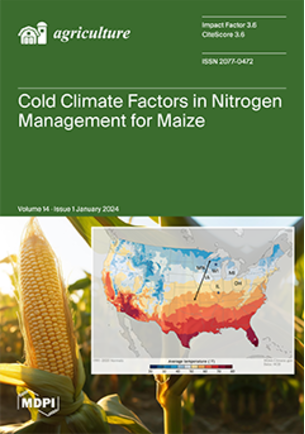权力下放与权力集中:如何确保粮食安全?来自中国粮食主产区 170 个地级市的经验证据
Q2 Agricultural and Biological Sciences
引用次数: 0
摘要
财政分权是否会导致农地 "非粮化",学术界一直存在广泛争议。如何通过厘清中央与地方的权责关系,提高财政支农效率,优化粮食种植结构,是保障粮食安全的关键。本文基于2004-2017年中国170个城市的面板数据,采用系统矩估计和门槛效应模型,探讨财政分权对粮食种植结构的影响。结果表明:(1)财政分权对粮食主产区粮食作物种植比重有显著负向影响。(2)以工资水平、财政支农、土地财政为临界变量,检验发现财政分权对粮食作物种植比重存在临界效应,其中土地财政依赖和工资水平的提高有利于缓解财政分权对粮食作物种植比重的负效应。(3)对于三大类粮食作物品种,财政分权对小麦和玉米种植比重的负向影响受工资水平、财政支农和土地财政的门槛效应影响,而财政分权对水稻种植比重的影响不显著。研究结果对政府深化分税制改革、完善财政支农资金稳定增长的长效机制、优化粮食产业布局具有重要的指导作用。本文章由计算机程序翻译,如有差异,请以英文原文为准。
Decentralization versus Centralization: What Ensures Food Security? Empirical Evidence from 170 Prefecture-Level Cities in China’s Major Grain-Producing Areas
Whether fiscal decentralization will lead to agricultural land “non-grainization” has been widely debated in academic circles. How to improve the efficiency of financial support to agriculture and optimize the grain planting structure by clarifying the relationship between central and local powers and responsibilities is the key to ensuring food security. Based on the panel data of 170 cities in China from 2004 to 2017, this paper uses system moment estimation and a threshold effect model to explore the impact of fiscal decentralization on grain planting structure. The results show that (1) fiscal decentralization has a significant negative effect on the share of food crop cultivation in the major grain-producing areas. (2) Taking the wage level, financial support for agriculture, and land finance as the threshold variables, the test finds that there is a threshold effect of fiscal decentralization on the proportion of food crop cultivation, in which land finance dependence and rises in the wage level are conducive to mitigating the negative effect of fiscal decentralization on the proportion of food crop cultivation. (3) For the three major types of food crop varieties, the negative impact of fiscal decentralization on the share of wheat and corn crop cultivation is subject to the threshold effect of wage level, financial support for agriculture, and land finance, while the impact of fiscal decentralization on the share of rice crop cultivation is not significant. The results of the study have an important guiding role for the government to deepen the reform of the tax-sharing system, improve the long-term mechanism of stable growth of financial support for grain, and optimize the layout of the grain industry.
求助全文
通过发布文献求助,成功后即可免费获取论文全文。
去求助
来源期刊

Agriculture
Agricultural and Biological Sciences-Horticulture
CiteScore
1.90
自引率
0.00%
发文量
4
审稿时长
11 weeks
期刊介绍:
The Agriculture (Poľnohospodárstvo) is a peer-reviewed international journal that publishes mainly original research papers. The journal examines various aspects of research and is devoted to the publication of papers dealing with the following subjects: plant nutrition, protection, breeding, genetics and biotechnology, quality of plant products, grassland, mountain agriculture and environment, soil science and conservation, mechanization and economics of plant production and other spheres of plant science. Journal is published 4 times per year.
 求助内容:
求助内容: 应助结果提醒方式:
应助结果提醒方式:


